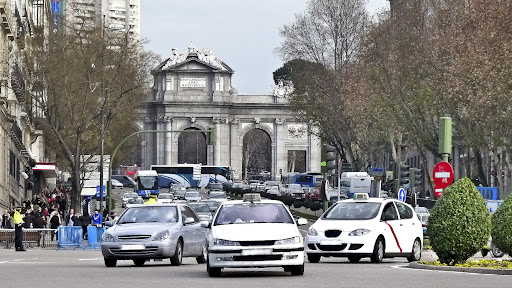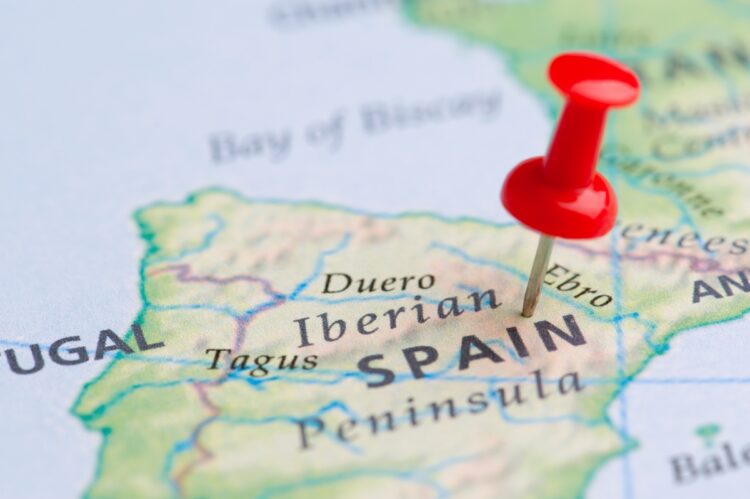Moving to another country will always bring a whole new set of rules, and while Spain is a lot closer to home for British ex-pats than Australia or the US, there are many differences new arrivals must accept, as we found out three decades ago, when we came from the UK to the Costa Blanca to open the JaveaEstateAgent, a now well-known real estate agency in Javea. In this article, we look at some of those differences and hope to give you an idea of what it is really like to live in Spain.
Cost of Living

Regarding the cost of living, Spain is one of the less expensive European countries. As the country slowly recovers economically after the Covid crisis, income and property prices are stable, and living costs are too high in relation to the average income. For example, the cost of renting in the UK is 40% more expensive than in Spain. However, having said that, you need to bear in mind there are substantial differences in cost when renting (or buying a home) in the large Spanish cities compared to smaller towns.
There are pros and cons to living in Spain, like in most countries. The reasonably low cost of living, weather, and natural attractions are positives, but would-be ex-pats need to consider the high unemployment rate. The economic recession of 2008 hit Spain extremely hard, and although the country eventually recovered, the unemployment rate remained high compared to other European countries. This was further compounded by the strict measures placed by the government during COVID-19, which saw many small business owners losing their livelihoods. Therefore, if you need to find a job when you move to Spain, you are advised to line up employment in advance.
The Siesta

The Spanish siesta still exists, but it has lost its original purpose for most. Instead of lying down for a sleep after the midday meal, Spaniards are more likely to eat out and spend time with workmates or friends. Others will shop or make the most of the time of work to get household jobs done. While it can be irritating to have to wait until the late afternoon for a necessary shop to reopen, it is something you will quickly get used to, and plan your day accordingly.
Learning the Language

Knowing Spanish is advantageous. Contrary to popular beliefs, not many Spaniards speak English well. Not speaking the language hinders everyday activities and makes dealing with town halls and other authorities impossible without the help of a translator.
If you move to an autonomous region with its own languages, such as Catalunya, The Basque Country, or Galicia, you need to remember that what you hear in shops, cafes, and on the streets may not be Spanish.
There are many ways to learn Spanish, including online courses, phone apps, face-to-face classes, or language exchange groups. Many town halls in Spain offer cheap subsidized lessons for newcomers to learn both Spanish and the local language, where applicable.
Driving

Driving can be a chaotic experience for the uninitiated in a busy metropolitan area. However, it is a much calmer affair outside of the big cities, but you must remember to keep to the right side of the road and be aware of speed limits.
Spain does have some lesser-known driving laws, which include, but are not limited to:
- Driving with a hand or arm hanging outside of the car can result in a fine of €100.
- Driving without “proper clothing,” i.e., not wearing a shirt, wearing flip-flops, or driving barefoot, gets you a fine of €200.
- Be careful when parking beside a beach. If the space is under environmental protection, you could end paying up to a hefty €6,000.
- Applying make-up or eating food at a red light can be costly, with a €200 fine and two points off your license.
- Blasting music from a vehicle in a quiet area at an unreasonable time can lead to a fine of €100 or more depending on the severity of the disturbance.
- Be careful of carelessness while driving. If traffic police catch you distracted, such as taking your eyes off the road, making hand gestures at other drivers, or even biting your nails, they can fine you €80.
- Always drive with both hands should be on the wheel.
- Driver’s ears should be uncovered and visible.
- Turn the radio off when entering a gas station. Filling up with the radio on can result in a fine of up to €91.
If you don’t want to drive when you move to Spain, you will find Spain’s public transport system is highly advanced and connects all the large towns cities, connecting all major cities.
Accessibility

Although Spain is very well connected with motorways, trains, airports, and nationwide bus service, not every property is accessible. When moving to Spain, choosing a property, whether renting or buying, should be the ultimate step in the process. It is far more important you first get to know the characteristics of an area before you decide on a home.
Sellers contract estate agents to sell a property. Therefore, don’t rely on an agent to tell you the downsides of the social dynamics of a specific area. They might “forget” or simply not be aware of them.
You should be on the alert, especially when buying property away from the coast. That idyllic hillside farmhouse might only be 15 minutes drive from a large resort, but is it truly accessible? You can only reach many such properties via a dirt track which can become inaccessible during and after heavy rain.
You don’t only have to worry about direct access to your chosen home, but also how accessible it is for travel. Is it within 90 minutes journey from an international airport? Can you get to the nearest city using public transport? How far is it from the nearest hospital?
These are matters that determine the accessibility and practicality of a chosen property. Inaccessibility is one of the prime reasons British return to the UK after moving to Spain, so again, research is vital; choose your area wisely.
 Hi Boox Popular Magazine 2024
Hi Boox Popular Magazine 2024



